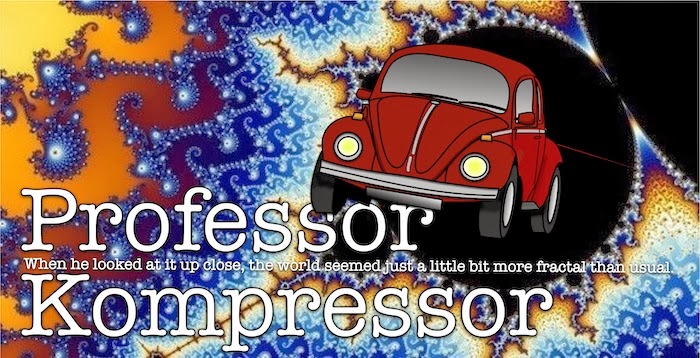Just over half a century ago a gravity meeting was held in Warsaw.
The leaders of the field gathered to discuss the key issues of the area. Among
the experts was Richard Feynman, the maverick genius that fathered a fair part
of modern physics. He was not at all impressed by the meeting. As he described
his impressions in an often quoted letter to his wife (taken from the
entertaining autobiography Surely you are
joking Mr Feynman?);
I am not getting anything
out of the meeting. I am learning nothing. Because there are no experiments
this field is not an active one, so few of the best men are doing work in it.
The result is that there are hosts of dopes here and it is not good for my
blood pressure: such inane things are said and seriously discussed that I get
into arguments outside the formal sessions (say, at lunch) whenever anyone asks
me a question or starts to tell me about his “work.” The “work” is always: (1)
completely un-understandable, (2) vague and indefinite, (3) something correct
that is obvious and self-evident, but worked out by a long and difficult
analysis, and presented as an important discovery, or (4) a claim based on the
stupidity of the author that some obvious and correct fact, accepted and
checked for years, is, in fact, false (these are the worst: no argument will
convince the idiot), (5) an attempt to do something probably impossible, but
certainly of no utility, which, it is finally revealed at the end, fails, or
(6) just plain wrong. There is a great deal of “activity in the field” these
days, but this “activity” is mainly in showing that the previous “activity” of
somebody else resulted in an error or in nothing useful or in something
promising. It is like a lot of worms trying to get out of a bottle by crawling
all over each other. It is not that the subject is hard; it is that the good
men are occupied elsewhere. Remind me not to come to any more gravity
conferences!
It just happens that another gravity meeting is being held in
Warsaw next week, and I am going... Just before travelling, it is interesting
to reflect on how the area has changed in the last decades. On the one hand,
things have changed enormously. On the other hand, you can argue that many of
Feynman’s comments are equally valid today.
Let me explain.
Feynman wrote his letter at a time when Einstein’s General
Relativity (that describes gravity) was pursued mainly by theorists and
mathematicians. The theory had been tested, but as Feynman points out, there
were no current experiments. And physics tends to progress by theory and
experiment going hand in hand. However,
astronomy observations were about to undergo a revolution. Radio and X-ray
observations were just around the corner and they were destined to change our
view of the Universe completely. Through these new windows it became apparent
that we live in a violent Universe where stars end their lives in massive
explosions, there are systems that flare and exhibit enormously powerful outflows
and perhaps most astonishingly… black holes are plentiful. Einstein’s theory
has been central to our current understanding of these amazing phenomena.
There was, of course, no way that Feynman could have seen this
coming.
Following this revolution, General Relativity must be a vibrant
research area, right?
Maybe not quite…
The reason is that many of the exciting ideas, like black holes,
that originated from Einstein’s gravity have now become part of mainstream
astronomy. The change has come about in such an astonishing way that gravity
theorists have been left behind. Astronomers often don’t see the need for the
intricate mathematics required to actually understand the theory. They seem
quite happy with a more handwaving discussion of the phenomena…
This – pretty much as in Feynman’s day – leaves General Relativity
as a comparatively small area with stalwart groups and individuals pushing on even
though the main focus is elsewhere (high energy physics and colliders, cold
atom gases, metamaterials, nanotechnology,…) And just as half a decade ago we
don’t have experiments. Actually, we do, but we are still waiting for them to
provide the goods. The difference is that this time we expect great things to
come, so there is an undercurrent of excitement.
Having looked at the programme for next week’s meeting I think I
will be able to find presentations that cover the numbered list in Feynman’s
letter. No problem. This is obviously not great. However, regardless what
happens next week I am unlikely to compose my own Feynman-esque letter to my
suffering wife.
Why not?
First of all, the first direct detection of gravitational waves –
as elusive as they have proved to be – should only be a couple of years away.
When the current LIGO detector upgrade is complete and data is taken, they
should see something. If they don’t then much of what we believe is true about
the Universe is wrong (which would be interesting in itself!). Secondly,
electromagnetic observations of neutron stars and black holes are becoming
increasingly precise. We are not far from the point where astronomers will have
to know Einstein’s theory if the want to understand their data. Won't that be
fun?

No comments:
Post a Comment